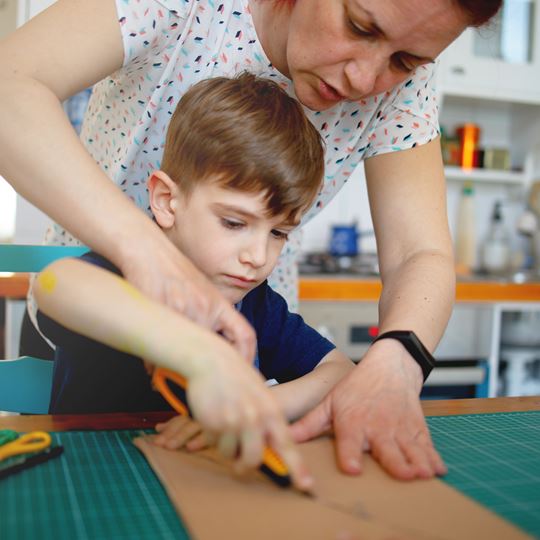What is emergency fostering?
Emergency fostering is needed when there’s a sudden and catastrophic change in a child’s circumstances caused by – for example – family breakdown, violence, parental illness or police trouble.
Emergency foster care provides a vulnerable child or young person with a safe place to stay until they can return home, or until a longer-term plan has been established. It's usually only for a night or two but can sometimes last for a couple of weeks, even a little more.
When a child's removed from their home in an emergency situation, local authorities will find a suitable foster parent who's available to care for them, usually at extremely short notice and often at night or over weekends. Therefore, people who specialise in emergency foster care are on permanent standby and will see a large number of children for short periods of time.
Children who come into emergency foster care are usually in a state of shock, stress or anxiety due to the events that have led up to them being taken into foster care. This is what makes emergency foster care so challenging and important. Your role as a foster parent is to comfort them and provide them with a soothing environment, where they can feel safe and secure while they're away from home.
It’s also possible to be an emergency foster parent alongside other types of fostering, depending on the child who may already be in your care.
Who can become a foster parent?
Almost anybody can apply to become a foster parent - the only initial requirements are that you're over 21 years old, you have the legal right to work in the UK and that you have a spare bedroom that's always available to a child in your care. Of course, you'll also need to be kind, caring and dedicated to making a difference to a child.
Other than that, we welcome applications from people from all backgrounds, religions and ethnic groups. You can be gay, straight, bisexual or transgender, single, married or cohabiting. We also support foster parents with disabilities and health conditions, who are able to meet the needs of children in care.
So if you've ever wondered whether you could foster - we can't encourage you enough to take the first step and speak to our friendly team.
How do you become a foster parent?
The first step is to have a chat with one of our friendly advisors - either complete our online form or give us a call on 0800 369 8512. We'll speak to you about the role, take a few details and answer any of your questions.
When you're ready to progress, there's a standard application and assessment process that you'll need to go through to become an approved foster parent, including home visits, background checks and references, training and attending a fostering panel. You can find out more about each step below.
What are the different types of fostering?
We offer many different types of fostering so we can continue to meet the ever-changing needs of children and young people in foster care. These include short-term or interim care (up to 2 years), long-term or permanent care (more than 2 years and until the child turns eighteen), emergency, respite and more.
We also provide foster care placements that are considered specialist, including parent and child fostering and caring for children with disabilities or those seeking asylum. Learn about the different types of fostering below.
How do local authorities place children with families?
When a child comes into foster care, the local authority becomes responsible for their health, safety and wellbeing, and while local authorities have their own 'pool' of foster parents, sadly they generally don't have enough to cope with the rising number of children needing a foster home. That's where specialist independent fostering agencies, like Fosterplus, come in.
We work with local authorities across England and Scotland, and receive hundreds of referrals every day. Our dedicated referrals team review each referral and identify any foster families who could meet the child's needs. If all parties agree - the foster parents, their Fosterplus social worker and regional manager, and the local authority - then we'll work closely with the local authority to make arrangements. Wherever possible, this will also include initial introductions between the child and family.
Other types of fostering
Please make sure you read our terms and conditions because you're agreeing to them by submitting an enquiry. It's also worth reading our privacy policy and cookies policy so you understand how we collect and use your personal data. This site is protected by reCAPTCHA and the Google Privacy Policy and Terms of Service apply.
Please make sure you read our terms and conditions because you're agreeing to them by submitting an enquiry. It's also worth reading our privacy policy and cookies policy so you understand how we collect and use your personal data. This site is protected by reCAPTCHA and the Google Privacy Policy and Terms of Service apply.
Discover everything you need to know about fostering by downloading our brochure, including;
- Types of fostering
- Requirements to foster
- Application process
- Training and support
- Allowances and benefits
Fill out your details on the following form and you'll receive our Guide to Fostering.
Can't find what you're looking for?
By phone
One of our team is available to talk to you over the phone to answer any of your fostering queries.
Enquire online
You can get in touch by filling out our online enquiry form with any queries that you may have.
Your local team
Find contact details for your local office team. We’re always happy for you to pop-in and chat.











